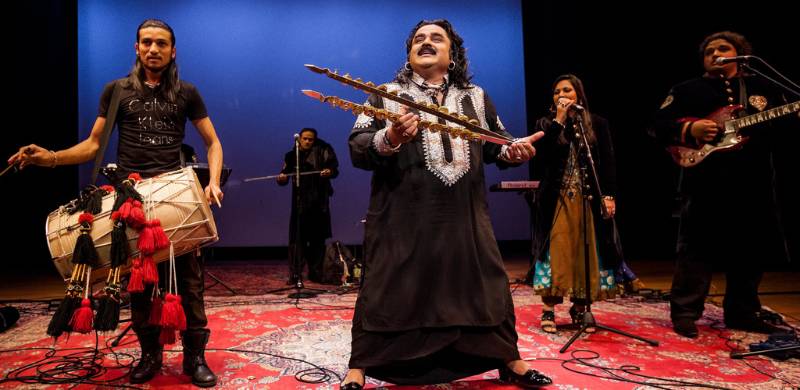
We all know and love Arif Lohar's iconic rendition of Jugni, but did you know that Jugni is more than just a song about a lovelorn woman? In Punjabi folk music, Jugni is a concept, not a person.
A Twitter thread by a user named Lalkaar recently dove into the history of Jugni, and noted that according to Punjabi folk etymology, a woman went out in search of her lost lover, in the guise of a female yogi, or a 'Jogan', which is where the word Jugni comes from.
https://twitter.com/Lalkaar_/status/1586734727263821831
Sometimes, Jugni is also used to represent spirutial devotion to the Holy Prophet Muhammad (PBUH), and refers to someone who is a 'jugni' of someone who is a devotee of Allah or the Prophet (PBUH).
https://twitter.com/Lalkaar_/status/1586734770414927875
The historic origin of some of the earliest poems invoking the figure of jugni is also mentioned. "One of the earliest known Jugni poems is set in the 1857 War of Independence against the British, sung by Punjabi rebels crossing the Bastar stream," says the tweet, noting that jugni continued to be associated with rebellion, resistance and war.
https://twitter.com/Lalkaar_/status/1586734818645123072
In addition to representing love, devotion, spiritual connection and religiosity, and war and resistance, Jugni also represented socio-economic differences & the plight of the poor.
https://twitter.com/Lalkaar_/status/1586734876413280257
https://twitter.com/Lalkaar_/status/1586734943438241793
A Twitter thread by a user named Lalkaar recently dove into the history of Jugni, and noted that according to Punjabi folk etymology, a woman went out in search of her lost lover, in the guise of a female yogi, or a 'Jogan', which is where the word Jugni comes from.
https://twitter.com/Lalkaar_/status/1586734727263821831
Sometimes, Jugni is also used to represent spirutial devotion to the Holy Prophet Muhammad (PBUH), and refers to someone who is a 'jugni' of someone who is a devotee of Allah or the Prophet (PBUH).
https://twitter.com/Lalkaar_/status/1586734770414927875
The historic origin of some of the earliest poems invoking the figure of jugni is also mentioned. "One of the earliest known Jugni poems is set in the 1857 War of Independence against the British, sung by Punjabi rebels crossing the Bastar stream," says the tweet, noting that jugni continued to be associated with rebellion, resistance and war.
https://twitter.com/Lalkaar_/status/1586734818645123072
In addition to representing love, devotion, spiritual connection and religiosity, and war and resistance, Jugni also represented socio-economic differences & the plight of the poor.
https://twitter.com/Lalkaar_/status/1586734876413280257
https://twitter.com/Lalkaar_/status/1586734943438241793

